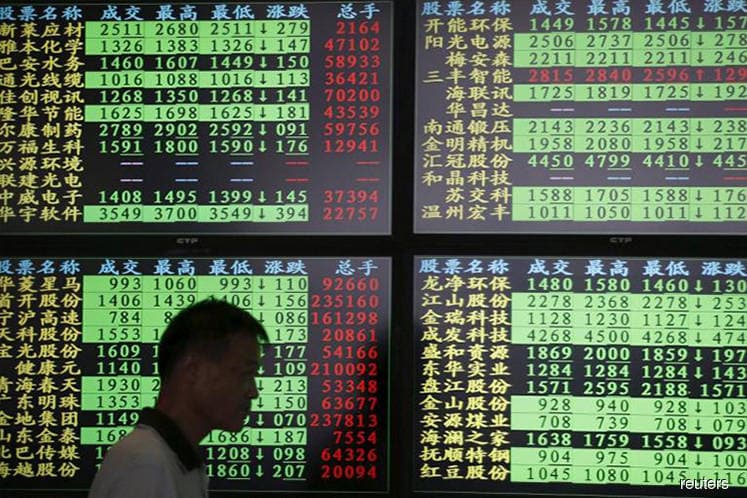
This article first appeared in The Edge Financial Daily on July 30, 2018
KUALA LUMPUR: Chinese smartphone maker Xiaomi Corp earlier this month became the first dual-class stock listed in Hong Kong. This was facilitated by Hong Kong Exchanges and Clearing’s (HKEX) move to introduce new rules that allow for dual-class shares (DCS) under which the voting rights of the shareholders are not the same.
Other stock exchanges and regulators are keeping an eye on developments related to this weighted voting rights structure as it is regarded as a more favourable structure for technology-related firms to go on a listing.
DCS involve two different classes of shares. One class, which has limited voting rights, is offered to the public. The other, offered to company founders, has more voting power and often provides for majority control of the company. Thus, the primary aim of this structure is to enable founders to retain their influence after a listing.
CFA Institute, a global association of investment professionals, however, stressed that it is important for regulators not to be caught in the hype surrounding DCS.
“The reason why it (DCS) is such a hot topic today is because the companies that come out in the market and attract the most investor attention are usually technology companies,” said Geoffrey Ng, the incoming governor on the board of governors of CFA Institute.
“The entrepreneurs behind these highly scalable technology companies feel that in order for them to grow very quickly, they would need large amounts of external capital (beyond their own personal capacities) but yet still allow them the voting power required to fulfil their objectives without having to come out with the same amount of capital provided by outside investors,” Ng told The Edge Financial Daily.
He said all the exchanges are competing with each other to ensure that they get a share of these tech-related or innovation-related companies as part of their fundraising activities.
Ng’s comments were reflective of what was seen in the market as Hong Kong stepped up its efforts to support the new economy and tech companies after missing out on the listing of Alibaba Group in 2014. Back then, the Hong Kong listing rules did not allow dual-class shareholdings, which was one of the main factors that led to Alibaba opting to list on the New York Stock Exchange.
The Singapore Exchange (SGX) was quick to respond, with the launching of rules on June 26 that allow firms to list with DCS.
As for Bursa Malaysia, it has clarified that it has no plans to allow DCS on the local bourse.
According to Ng, the Malaysian stock exchange regulator has taken a cautious approach and would like to see the experiences of some of the larger Asian exchanges as they experiment with DCS listings. He believes this is the right approach as it is important for Bursa to ensure that there are sufficient industry infrastructure, investor sophistication and protection mechanisms to facilitate the DCS structure.
The important question, Ng said, is whether there is enough of an ecosystem here to generate companies that are listable in the first place.
“If you asked me, I don’t see there are sufficient names, identifiable names that are big enough, mature enough or unique enough to facilitate the dual-class share structure,” he said.
CFA Institute head of advocacy for the Asia-Pacific region Mary Leung hopes Malaysia will not rush into allowing DCS but instead figure out the sort of marketplace that it envisions.
“I think before any exchange looks into this, they really need to get a sense of what their unique proposition is. If this is offered by everyone, what makes you stand out?” Leung said.
While the DCS structure is relatively new in the region, it has been in place for a long time in the US. Leung, however, pointed out some of the key differences between the US and the Asian markets, which make the structure more viable in the US compared with Asia.
“There is significant direct retail participation in the market in Asia. In the US, more people participate in the market through their retirement plans and funds, whereas in Asia, a lot of people would jump into the market directly,” Leung said, adding that the judiciary system in US also provides more avenues for investors to voice and defend their rights.
For example, she said, there is class action, derivative action and financing of legal action in the US, while in Hong Kong, derivative action is limited in practice while class action and financing of legal action are not available.
According to Leung, some of the rights of investors are taken away under DCS.
“We (CFA Institute) firmly believe in the one-share-one-vote structure … if you are not answerable to the market or investors, you have absolute control, which will lead to reduced accountability, even when bad decisions were made. So, there is a huge amount of entrenchment risk,” she said, pointing to the huge gap between control and economic ownership.
Both the HKEX and SGX have limited the maximum voting differentials to 10 votes to one share, but Leong pointed out that even then, a founder would only need 9% of the equity to gain a 50% control of the company.